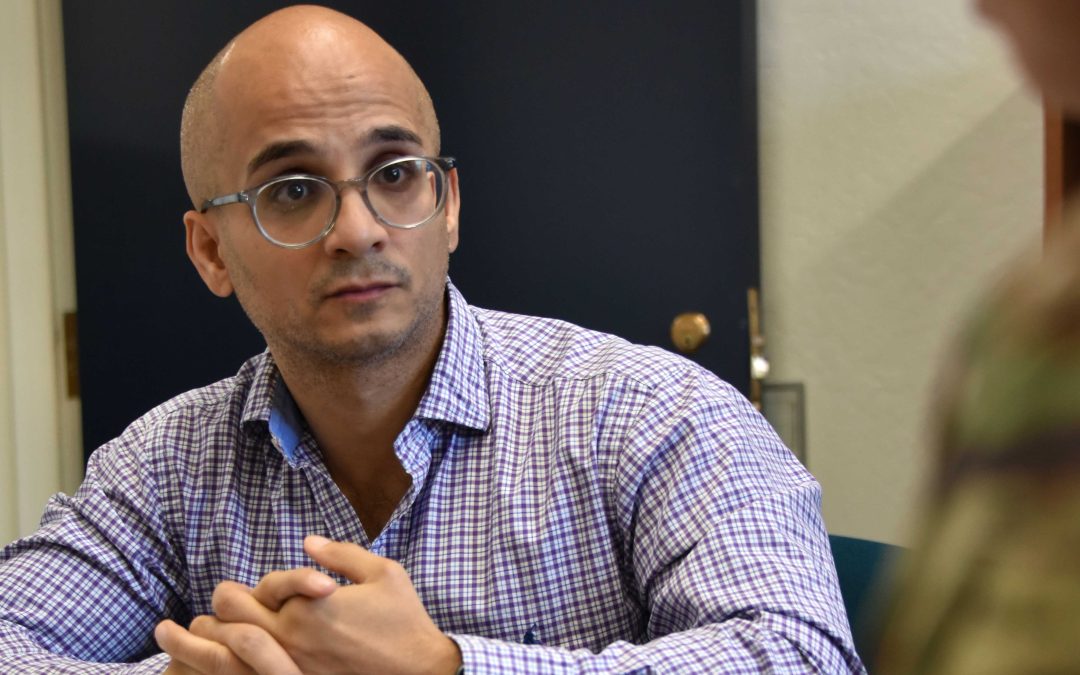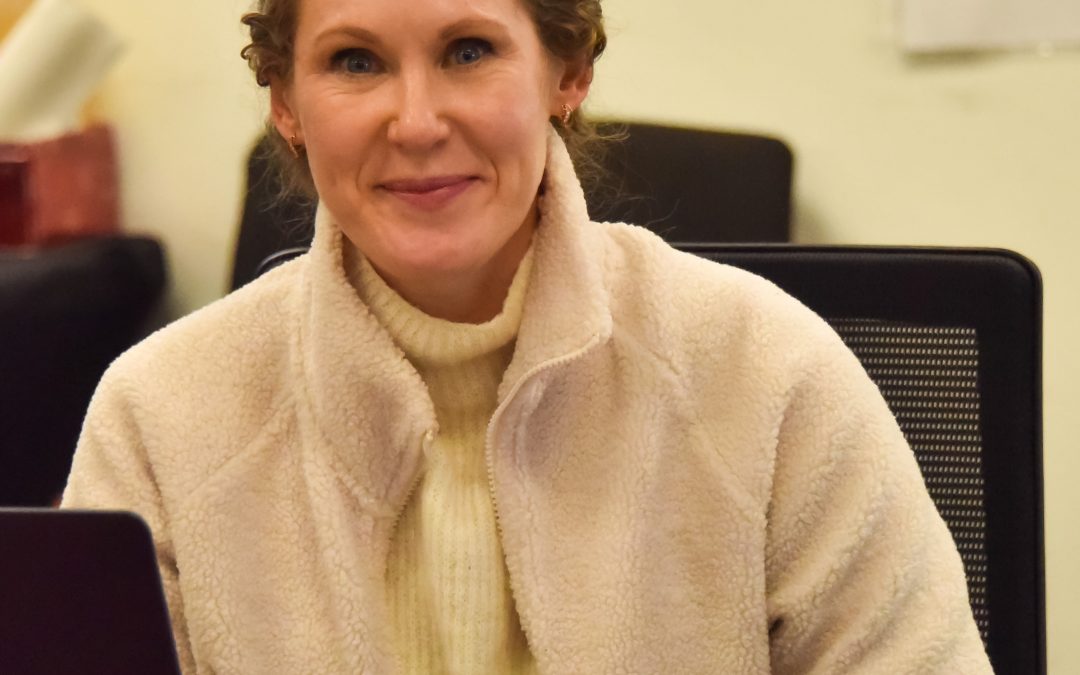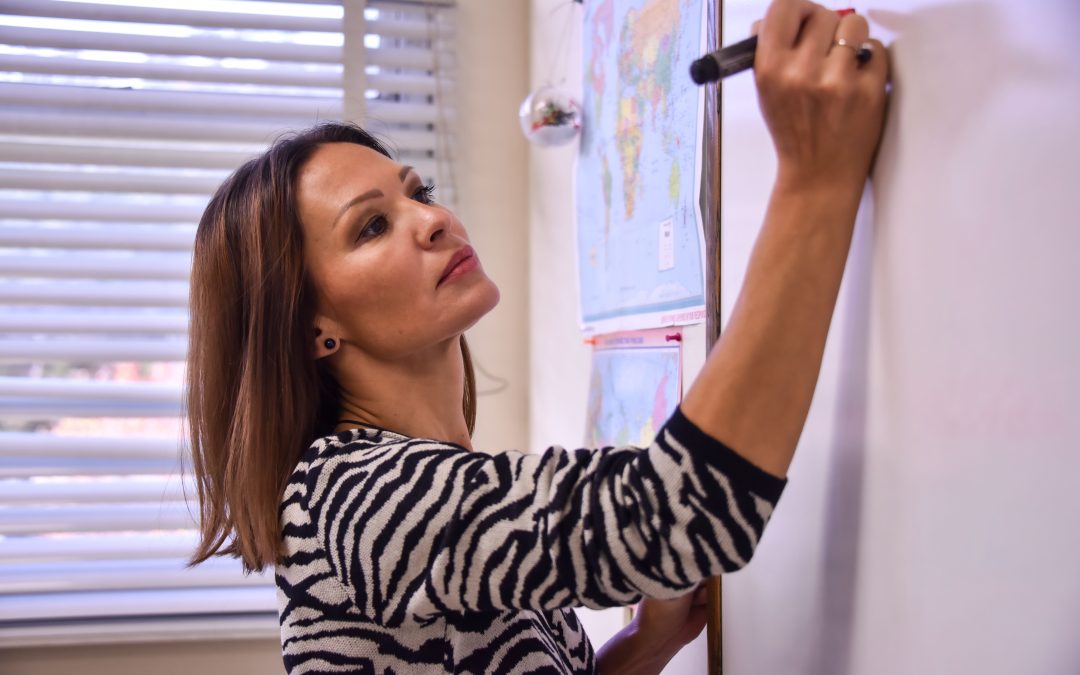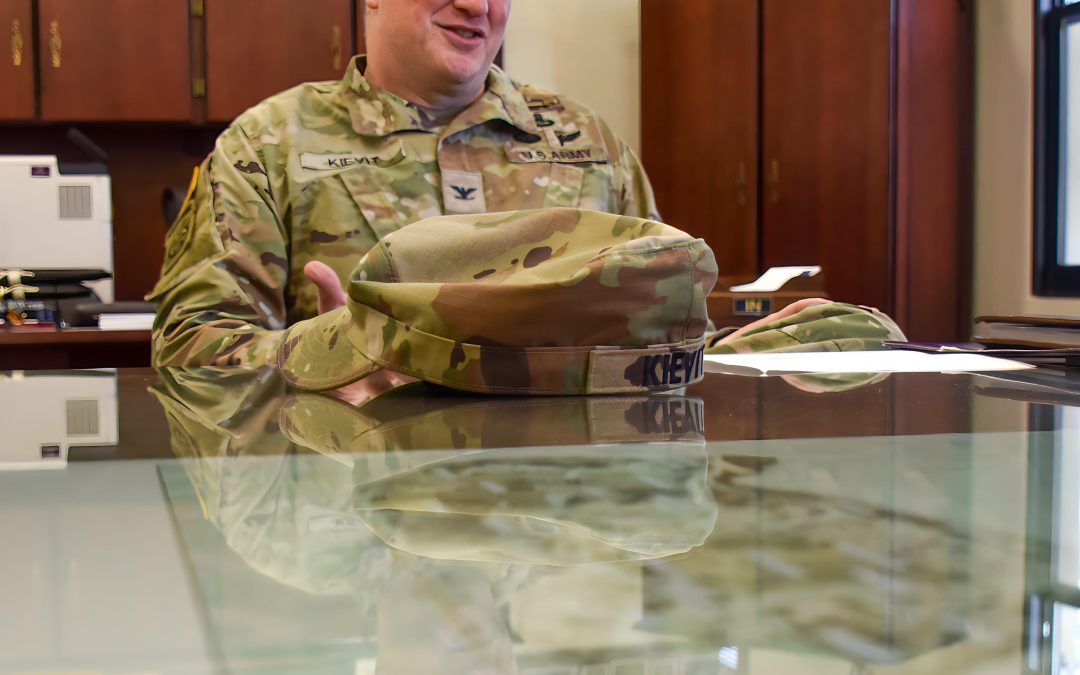By Natela Cutter
DLIFLC Public Affairs

Students take public transportation to the nearby Russian Cultural Center, a museum with Russian artifacts. Lance Cpl. Jordan Duncan, Airman 1st Class Jauric Flowers, Spc. Rachel Brookens, and their professor, Dimitri Olekhnovich, squeeze into a local tram for the short ride. (Photo by Natela Cutter)
DAUGAVPILS, Latvia – When the political situation became heated in the Ukraine in late 2013, the U.S. Embassy in Riga, Latvia, received an urgent call. U.S. students studying Russian needed a place to continue their studies – and what better place but within the European Union, in a country where 50 percent of the population speaks Russian?
“In fact, about 90 percent of the people here in Daugavpils speak Russian and use it all the time. Because we are located at the eastern most part of Latvia, most who live here are ethnic Russian,” says Sergey Simonov, the director and program manager of a company that has partnered with Daugavpils University to make the program possible.
With a unique approach of customized individual and small group courses in Russian, taught by highly qualified professors, the program specializes in literature and post-Soviet studies and instructs more than 150 students from various countries annually.
“The best thing about our program is that we have such a wonderful partnership with the Daugavpils University linguistics department. We expect our program to grow, precisely because of that excellent quality, convenient location and the fact that it is very safe here. Daugavpils is the best kept secret,” says Simonov, with a grin.
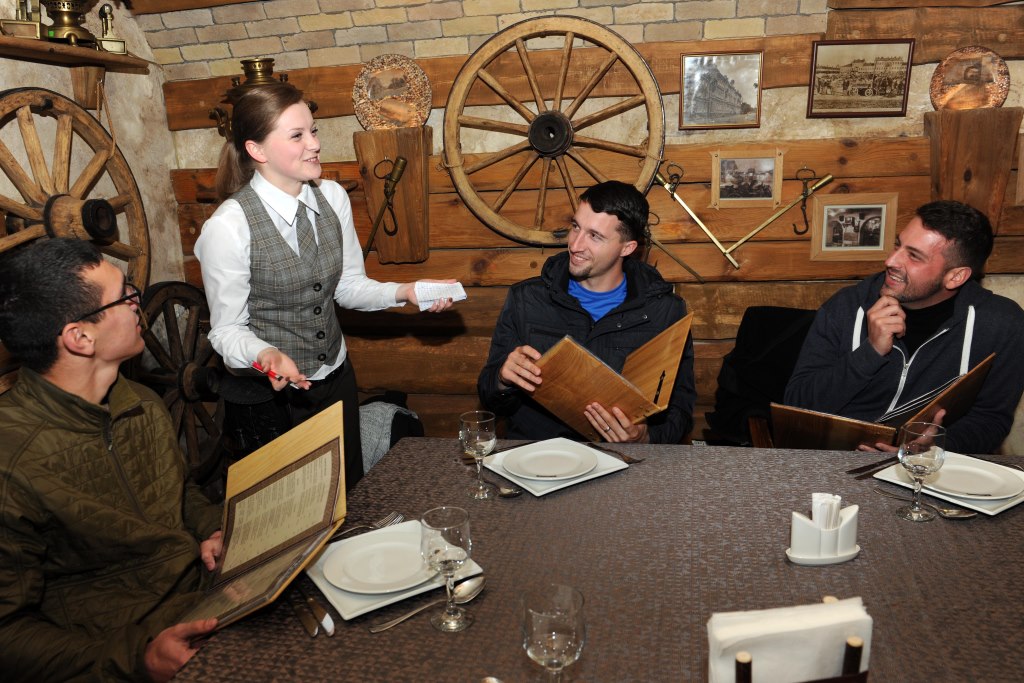
Russian language students speak with food server in a restaurant in downtown Daugavpils about the menu selection in Russian. Though the population speaks almost exclusively Russian in this region, all public sings and written communication is in Latvian. (L-R) Lance Cpl. Alejandro Otero, the food server, Spc. Taylor Johnson and Seaman Israel Trujillo. (Photo by Natela Cutter)
“I spend about two hours per day talking with my family. We talk about everything that happened during the day, about life in the U.S., life here, and cover just about every topic imaginable,” said Army Spc. Taylor Johnson.
In a local restaurant, friendly servers enjoy chatting in Russian with students who are trying to practice their language. Because the menu is in Latvian, a language with very little similarities to Russian, the conversation is at first a struggle and then turns to laughter.
“I wish this immersion could last longer because I feel like I just got over the stage fright,” says Seaman Israel Trujillo, musing over the menu in one of the most popular restaurants in town that resembles a German or Irish pub, with countless beer mugs, antique collectibles, and even an old fashioned crank phone attached to the wall.
Downtown Daugavpils, with its main square and small shopping malls is a picturesque little town, with a population slightly below 100,000 and very little crime. The streets are kept pristinely clean, the buildings have all been remodeled, and the countryside resembles the Midwest, with flat land and quaint farms dotting the countryside.
While class is conducted at Daugavpils University in the morning hours, the afternoons are filled with excursions to significant war memorials, churches, museums, and other historic sites.
“This Russian Orthodox church is one of the original churches that is called the Old Believer’s Church,” said Professor Dimitri Olekhnovich, the assistant dean of the Faculty of Social Sciences. Speaking rapidly in Russian, Olekhnovich explained the schism that occurred within the Russian Orthodox Church in the 17th century still exists today.
And it is precisely this type of lecturing that broadens not only the vocabulary of students, but gives them the historical context within which a particular society functions.
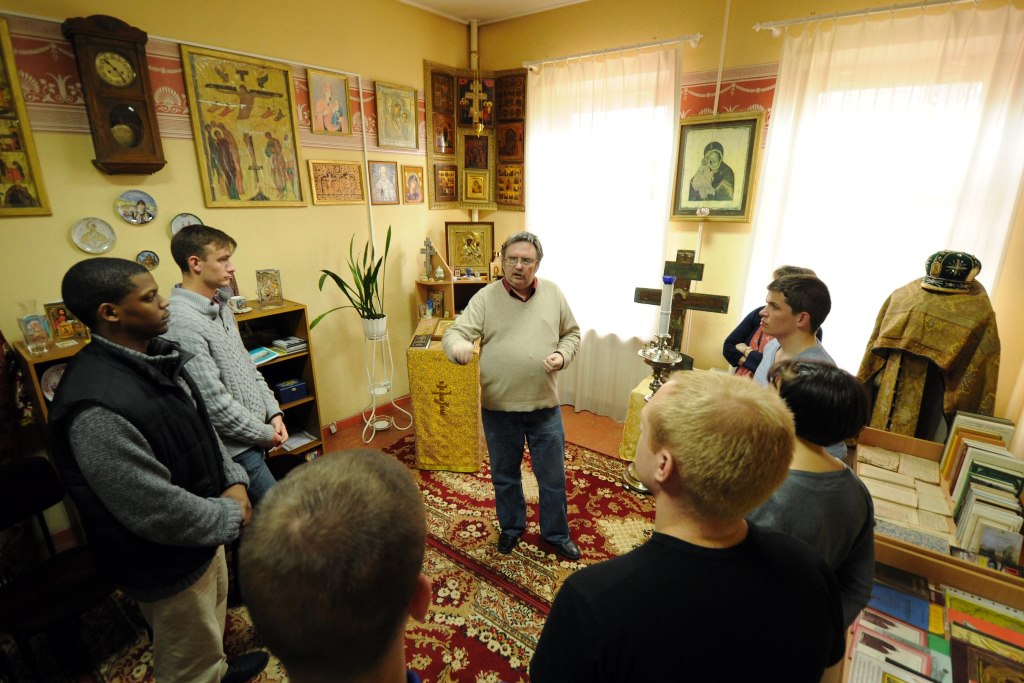
Students gather to listen to the local historian lecture at the Russian Cultural Center. (Photo by Natela Cutter)
“I feel that I better understand how people think, why they use certain colloquialisms, and why they act the way they do,” said Airman 1st Class Tyler West, after returning from Latvia. “I definitely feel more at ease speaking the language and I am more ready to jump into a conversation than before.”
Only a few months away from graduation, this group of DLIFLC students feel that they are more ready for their final exam, the Defense Language Proficiency Test, which they must pass in order to embark on their linguist careers.
“I think we are leaps and bounds ahead of where we were before we went to Latvia,” confirmed Spc. Rachel Brookens.

